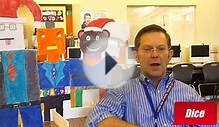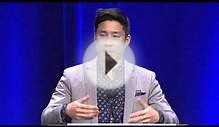
In fall 2016, the College Board will launch its newest AP® course, AP Computer Science Principles. The course introduces students to the foundational concepts of computer science and challenges them to explore how computing and technology can impact the world. The AP Program designed AP Computer Science Principles with the goal of creating leaders in computer science fields and attracting and engaging those who are traditionally underrepresented with essential computing tools and multidisciplinary opportunities.
For more information, visit .
Features
- Experience a blend of online, guided tutorials and open-ended, project-based learning
- Learn from a diverse cast of role models, from well-known tech celebrities to social innovators who are using CS to tackle society's problems
- Engage all students in constructing their own understanding of computer science concepts through equitable teaching practices and inquiry-based instructional strategies
- Prepare for the AP® CS Principles exam through a curriculum intentionally designed around the latest developments in the College Board framework, including built-in preparation for the performance tasks
Check back often. The video library is growing every week!
Overview
Several documents describe the overarching themes and direction of the course.
Lessons
| Link | Unit Description |
|---|---|
| Unit 1 | Digital Information: What can be represented with a single bit and how do we get a single bit of information from one place to another? This unit explores the technical challenges and questions that arise from the need to represent digital information in computers and transfer it between people and computational devices. Topics include: the digital representation of information - numbers, text, images, and communication protocols |
| The Internet: Students continue to work together to invent solutions and protocols to many of the problems that arise in the structure and function of the Internet. Topics include the Internet Protocol, DNS, TCP/IP, cryptography, computationally hard problems, and other security and hacking concerns. | |
| Programming: Students learn the fundamentals programming constructs of JavaScript by solving problems with “turtle graphics.” Then move on to programming simple event driven apps. An emphasis is placed on enabling students to solve problems and write code in teams. | |
| Data: Being able to digitally manipulate data, visualize it, identify patterns, trends and possible meanings are important practical skills that computer scientists do every day. The data rich world we live in also introduces many complex questions related to public policy, law, ethics and societal impact. Understanding where data comes from, having intuitions about what could be learned or extracted from it, and being able to use computational tools to manipulate data and communicate about it are the primary skills addressed in the unit. | |
| Explore and Create: Class time devoted to preparation and execution of the AP® Performance Tasks: Explore and Create. | |
| Databases in Apps: This loosely-structured material includes new content which students can work through after the AP® test. The content includes skill-building levels about remote data storage and how to use App Lab's Data Tools to create data-backed apps. |
Chat about CSP in the CSP forum
We have forums for educators to discuss and trade ideas about CSP and talk about the curriculum. Code.org forums are used for all of our courses K-12 and can be found at forum.code.org. For CSP there are two forums that are most useful:
When will lessons be published?
All lessons are now published! See the table above.
Can I test lessons and give feedback?
Yes, please! As lessons are published on the website we invite anyone to try them out - both the lessons and any new tools or software - and let us know how it went. Our desire is that the curriculum will be a living document and not something set in stone. We are open to changes or alternatives to lessons so please send us your feedback by using the CSP forum.
How/Where can I get professional development for this course?
In-person professional development for the Code.org CSP course will be available in select partner districts starting in Summer 2015. After one year of piloting and refining the PD program we will make all of our PD agendas, schedules, and other materials available to the public. This includes all of our online and in-person PD programs.
How can I learn more about the progress of the curriculum?
We're now sending out a monthly status email for members of the computer science education community who are interested in peeking under the hood as we actively work to develop the curriculum and tools for the course. Sign up for future emails.
INTERESTING VIDEO












